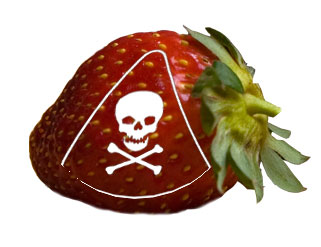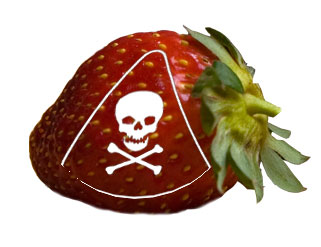 In the waning days of the Bush Administration, the EPA executed what will likely go down as the single most egregious decision in its less-than-stellar history: Ignoring strong warnings from independent scientists, it approved use of a pesticide so carcinogenic that scientists had previously used it to induce cancer in tissue samples. The chemical, a fumigant called methyl iodide, swiftly went into use in states with significant production of fruit, mainly strawberries. (I chronicled the twisted tale on Grist at the time.) But one key strawberry-growing state held out: California, which subjected methyl iodide to a separate review process.
In the waning days of the Bush Administration, the EPA executed what will likely go down as the single most egregious decision in its less-than-stellar history: Ignoring strong warnings from independent scientists, it approved use of a pesticide so carcinogenic that scientists had previously used it to induce cancer in tissue samples. The chemical, a fumigant called methyl iodide, swiftly went into use in states with significant production of fruit, mainly strawberries. (I chronicled the twisted tale on Grist at the time.) But one key strawberry-growing state held out: California, which subjected methyl iodide to a separate review process.
Well that process has now played out. Again, independent scientists cried foul; but now, the state stands on the verge of approving methyl iodide. Shocking the scientists whose opinions it had solicited, the state’s Department of Pesticide Regulation has officially recommended that methyl iodide be approved for use. The public comment period closed on June 29; I’ll report any updates here.
In this week’s Victual Reality, my podcast series about food politics, I talk to Susan Kegley, organic chemist and long-time science guru for the California-based Pesticide Action Network of North America, which has just issued a brand-new report (PDF) showing that drift from fumigants such as methyl iodide routinely shows up at alarming rates in air of nearby communities, “even when all application rules were followed and no equipment failure occurred.”
In the podcast, Kegley explains how this stubborn chemical keeps repelling scientists and gaining favor from politicians — and what the next steps are in the fight to keep it out of America’s fruit fields.
(The podcast is a production of Edible Radio; it and other interesting food-politics podcasts can be downloaded here.)



